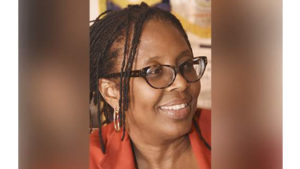 Opposition spokeswoman on education Angela Brown-Burke has called on the Government to walk back its decision to have only vaccinated children return to face-to-face classes, arguing that to do otherwise would be to trample on the right to education.
Opposition spokeswoman on education Angela Brown-Burke has called on the Government to walk back its decision to have only vaccinated children return to face-to-face classes, arguing that to do otherwise would be to trample on the right to education.
However, her position is being countered by Carla Gullotta, executive director of human rights NGO Stand Up For Jamaica, who said that mandatory vaccination requirement for children to attend school in person is not novel.
Health authorities last weekend embarked on the first leg of a drive to vaccinate children 12 to 18 following the arrival of 200,000 Pfizer vaccines in the island last Tuesday, the first of three tranches of a total 600,000 doses.
According to the Administration, children 12 and older are being prioritised for the jabs for this shipment, with parental consent, the aim being to allow them to return to face-to-face classes in September.
Education Minister Fayval Williams last week said, while vaccinated students will be eligible for face-to-face classes, those who are unvaccinated will have join classes online until they receive the jab.
Brown-Burke, however, is urging a rethink.
“First of all, I want to make two points, the first one is, I am fully vaccinated and I encourage everyone to be vaccinated. The second is, education is a right that should be guaranteed to all our children, and I am sure our human rights lawyers and our constitutional lawyers are going to be looking at what our constitutions says,” she said.
“I believe the Government has a responsibility to provide every opportunity to provide for the education of our children, especially after the last two years, where our estimate is that as many as 200,000 have been disengaged and have not picked up a book or done much in the last two years, and therefore I believe that the Government should continue to encourage teachers, parents, and students to continue to take the vaccination. But I believe it would be a very wrong step to deny a child the opportunity for education because they are not vaccinated,” she argued further.
However, Gullotta, weighing in on the discussion, said: “First of all, I would love to remind everybody that all children, when they go to school, have to have an immunisation card. Today we accept the fact that every child in Jamaica needs to have an immunisation card to access school.”
Pointing out that she is fully vaccinated, as are most of her family, Gullotta said: “I believe the reason there is such a strong push towards asking everybody to take the vaccine is the numbers, which is a lot. If you don’t do it for yourself, that is your free choice, but you live in a community, you live in a family where there might be other people who are affected by your choice about sending children to school. It is a right, yes, but also it is a right for parents to return to work. It is not an easy situation.”
Added Gullotta: “I don’t like to campaign too much, but in a moment like this I think that taking the vaccine is a way to go back to a normal life, to reduce the numbers, to reduce the risk, and to allow our children to be with other children and their teachers and also to learn, that is what education is for. This campaign to vaccinate children 12 to 18 is a way to send them back for face-to-face classes. We have seen how difficult it is for them to be online; it has been very challenging.”
As far as mandatory vaccines in Jamaica are concerned, up to 2019 the country’s immunisation schedule offers vaccination against 12 vaccine-preventable diseases as recommended by the World Health Organization. The majority of these vaccine doses are delivered in the first year of life, along with the measles-mumps-rubella (MMR) vaccine and booster doses of polio vaccine in the second year of life. A booster dose of polio and diphtheria-tetanus-pertussis (DTP) vaccines is administered to children aged 4 to 6 years and the human papillomavirus (HPV) vaccine to 11 to 12-year-old girls. Since 2010 the child health passport is issued at birth and it includes the individual’s record of vaccination.
Since 1986 the Public Health (Immunization) Regulations of the Public Health Act of Jamaica has specified that all children under the age of seven years must be adequately immunised before entry to school. Only children with a medical contraindication to vaccination, as documented by a public immunisation officer or medical practitioner, are exempt.
The Public Health Immunisation Regulations also state that it is the duty of every caregiver to have his/her child vaccinated as recommended by the Ministry of Health and Wellness. Additionally, anyone (caregivers, school staff or health care workers) violating the Public Health Immunisation Regulations is subject to a fine of $500. Defaulting on the fine payment could result in up to 30 days in prison. In 2013 these penalties were increased to a fine of $1,000,000 and imprisonment not exceeding 12 months.
